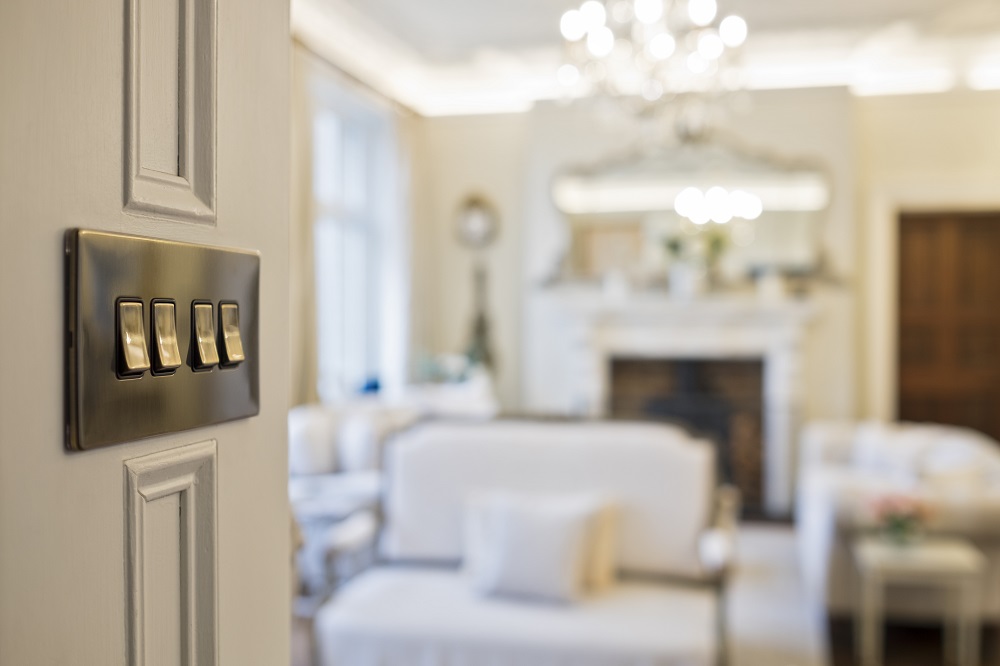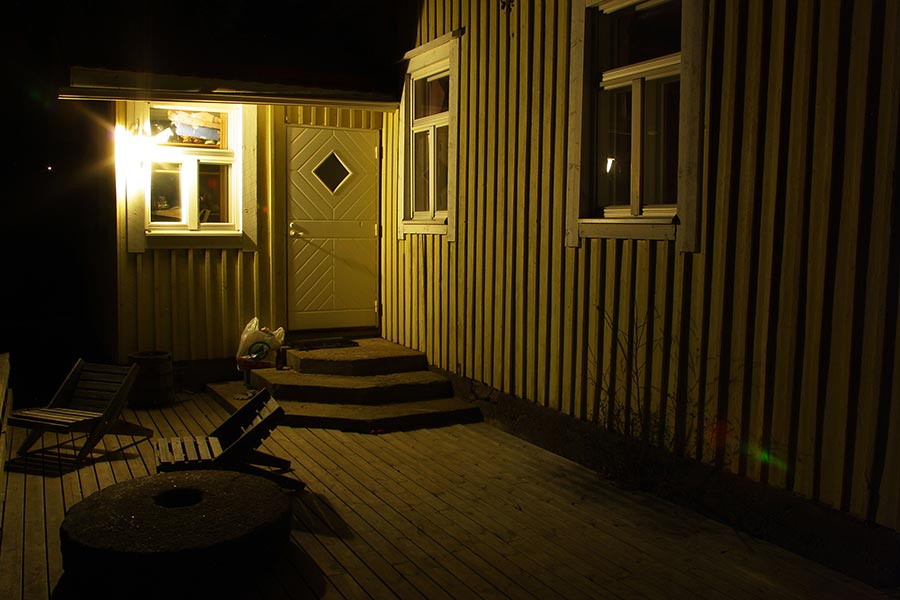When you leave lights in your house or business on, you use energy. This means that you will be putting a strain on the power grid and raising your energy bill. However, there are times when it is okay to leave lights on because they can help with safety and security.
Why do you actually leave the lights on?
One common reason for leaving lights on is to keep your home or business safe from intruders. Leaving some lights on in different areas of your space can often deter burglars from entering your property and stealing or vandalizing things inside. This could also apply if you live in an area where there may be wildlife prowling around at night, such as bears or raccoons; keeping a light on near any points of access could prevent these animals from wandering into your space without being seen by them.
Another safety issue to consider is if there are small children or elderly people in your home who could benefit from having a light on at night. If they need to get up to use the restroom or grab a drink of water, having a light on could help them avoid any accidents.
Finally, some people simply feel more comfortable and secure when they know that there are lights on in their space, even if they’re not using them. This could be due to past experiences with power outages or feeling unsafe in the dark.
How much will leaving lights on actually cost you?
The amount of money that you spend on leaving lights on all depends on how much energy your bulbs use and how much you pay for electricity. Energy-efficient bulbs, like LED lights, use much less electricity than traditional incandescent bulbs. This means that you can leave them on for longer periods of time without seeing a major impact on your energy bill.
The cost of leaving an LED light on for 24 hours would be about $0.27 per day, while the cost of leaving an incandescent light on for the same amount of time would be about $7 per day. So, if you’re worried about how much it will cost to keep your lights on, make sure to switch to energy-efficient bulbs!
Are there any other benefits to leaving lights on?
In addition to deterring burglars and making your home or business more secure, there are a few other benefits to leaving lights on.
First, if you have an outdoor security system, having the lights on can actually make it more effective. Many outdoor security cameras need light in order to properly record footage, so if your system is triggered in the middle of the night, there’s a good chance that it will be dark. Having a light on can help ensure that the footage is clear and that you’ll be able to identify any intruders.

Second, if you live in an area where there are severe weather conditions, like hurricanes or tornadoes, having lights on can help emergency personnel find your home or business more easily. In the event that your power goes out during a storm, having lights on will make it easier for first responders to locate your property.
Finally, leaving lights on can actually help extend the lifespan of your bulbs. If you frequently turn your lights off and on, it puts a lot of stress on the bulb and can cause it to burn out more quickly. However, if you leave your lights on for longer periods of time, it will reduce the number of times that the bulb has to be turned on and off, which will help it last longer.
Leaving lights on comes with a cost, but there are also some benefits that you may not have considered. Whether you’re doing it for safety reasons or simply to deter burglars, there are plenty of good reasons to leave your lights on.
Is there a risk of fire hazards when leaving lights on?
Leaving the lights on when you leave home is not a fire hazard. However, it is a waste of energy and money. If you are concerned about safety, consider using a timer to turn the lights off after you leave. When you turn on the light and leave it for a week or more, there is a possibility that it will become a fire hazard. This is because the light bulb becomes very hot and can cause a fire. A way to prevent this from happening is to use LED lights for your home as they do not emit any heat and are energy efficient.
There are also some other risks when you leave your lights on for a very long time. For example, if you have an old home, the wiring could overheat and cause a fire. If you have pets, they could chew on the cords and cause a fire. So it is best to be safe and turn your lights off when you leave your home. Another hazard is that if you have a lot of lights on in your home, it can attract bugs. So it is best to keep your lights off when you are not home.
In conclusion, leaving lights on does have some risks but there are also some benefits. It is up to you to decide whether the benefits outweigh the risks.
Are overheated bulbs dangerous?
There is some risk associated with overheated light bulbs, as they can pose a fire hazard if they become too hot. This risk is generally higher with incandescent bulbs, which are less energy-efficient and generate more heat than other types of bulbs. Some ways to reduce this risk include using LED lightbulbs, which stay cooler and use less energy and keeping the lights off when you are not home to minimize the amount of time that they have to be on.
Additionally, it is important to ensure that your bulbs are properly installed and in good working condition so that there are no issues with overheating or wiring. Ultimately, it is important to take appropriate safety precautions when leaving your lights on for long periods of time.
For instance, if you use LED bulbs in your home and keep the lights on a timer, you can help mitigate any risk of overheating or fire hazards. If you prefer halogen bulbs, you should be sure to check them regularly and replace any bulbs that are not working properly. Furthermore, it is important to keep your home well ventilated so that heat does not build up in the light fixtures themselves. Overall, there are some risks associated with leaving lights on for long periods of time, but taking these precautions can help minimize this risk.

How long will your bulbs live if you turn them on all the time?
As the title suggests, leaving the lights on for a long period of time can have an adverse effect on your bulbs.
There are several factors that determine how long your bulbs will last if you leave them on all the time. One important factor is the type of bulb you're using - some are more sensitive to heat and light than others, and may not be able to handle continuous use without burning out more quickly. Additionally, certain bulbs may be designed specifically for use in specific settings or applications, such as outdoor lighting or high-traffic areas.
Other things that can impact the lifespan of your bulbs include fluctuations in power supply and regular usage patterns. If you run your lights continuously throughout the day, for example, this can cause them to burn out more quickly than if you were to turn them on and off on a regular basis. Additionally, if there are power surges or fluctuations in your home's electricity, this can also shorten the lifespan of your light bulbs.
In general, incandescent bulbs have a shorter lifespan than LED or CFL bulbs - typically around 1,000 to 2,000 hours versus 8,000 to 10,000 hours or more. However, this is still dependent on the specific type of bulb and how it's used. If you're concerned about leaving your lights on for extended periods of time, it's best to consult with an electrician or lighting specialist to find out which type of bulb would be best suited for your needs.
What`s the lifespan of different bulbs?
There are different types of bulbs that have different purposes. You need to be careful about using the right bulb for the right application, as some are not meant to be used all the time.
- Incandescent: around 1,000 to 2,000 hours
- LED: 8,000 to 10,000 hours or more
- CFL: 8,000 to 10,000 hours or more
As you can see, leaving your lights on for extended periods of time can have an adverse effect on the lifespan of your bulbs. If you're concerned about this, it's best to consult with an electrician or lighting specialist to find out which type of bulb would be best suited for your needs.
The lifespan of each bulb type varies, with some being more sensitive to heat and light than others. Additionally, certain bulbs may be designed specifically for use in specific settings or applications, such as outdoor lighting or high-traffic areas.
When choosing a bulb, it's important to consider the purpose for which it will be used. If you need a bulb that will be left on for long periods of time, it's best to choose one that is designed for this purpose. LED and CFL bulbs are generally a good choice for this, as they have a longer lifespan than incandescent bulbs. If you have any further questions about choosing the right bulb for your needs, feel free to contact us. We would be happy to help you find the perfect solution for your home.
What about light strips and Christmas lights safety?
During holidays and other times of the year, many people put decorative lights around their homes and trees. It’s not just for the aesthetic appeal; it can also be a security feature. However, there are some risks that come with leaving lights on your home for long periods of time.
Light strips and Christmas lights are generally safe to use, as long as you follow a few key safety tips. First, make sure that all electrical connections are secure and that any light string is working properly before using it outdoors. When wrapping outdoor power cords around tree branches or shrubbery, ensure that they aren’t in direct contact with any water sources, such as rain gutters or ponds. You should also avoid placing strings too close to each other, as this can cause the lights to overheat.
It’s also important to keep your cords away from pets and children, especially during the holidays when they may be more inclined to pull at or chew on them. If you’re using extension cords outdoors, place them in a covered location or weatherproof box so that there is minimal risk of exposure. In addition, avoid running multiple strings together for increased illumination; if one bulb goes out, it could potentially cause a surge in electricity that leads to fires or other problems.
To help ensure safety while leaving Christmas lights on your home year-round or just during the holidays, follow these tips and take necessary precautions. By doing so, you can enjoy both a well-decorated home and peace of mind.
Final words
Leaving your lights on for extended periods of time can have consequences, but there are ways to mitigate these risks. Make sure you understand the type of bulb you’re using and take precautions when placing them around your home. With a little bit of care, you can enjoy your lights without worry.






